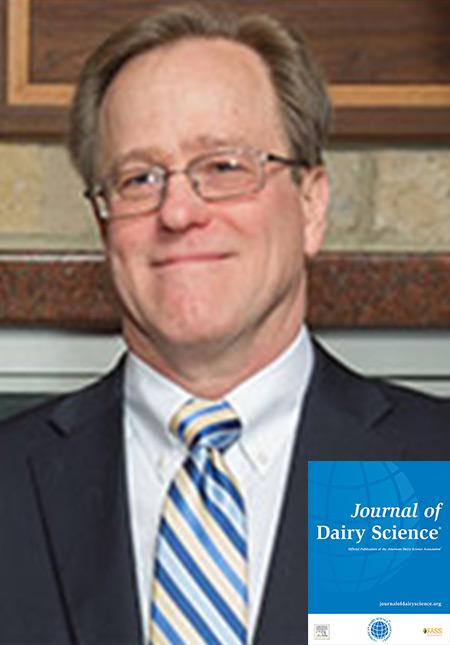
Name: Jeff Firkins
Institution: The Ohio State University
Role with Journal of Dairy Science (JDS): Senior editor, Animal Nutrition section
Can you tell us a bit about your background, and what your current research is focused on?
I grew up on a grain and livestock farm, working more hours (for “jawbone wages”) than I wanted on my uncle’s dairy farm three miles away. I went to the University of Illinois in 1977 and left for Ohio State University in 1987 with three degrees and a postdoc. I stayed because of their expertise in rumen microbiology and ruminant nutrition, which I’ve been trying to integrate for nearly 40 years in a program that also has those same strengths. My research has focused on many aspects of rumen function, ranging from microbial ecology, microbial protein supply to the dairy cow, rumen physiology, and site of nutrient digestibility. Currently, I focus on factors enhancing microbial protein supply to the small intestine while minimizing methane emission and nitrogen excretion in waste.
What advice do you have for grad students or other early-career scientists submitting their first manuscripts? What are common oversights you see?
Your introduction should funnel down to objectives related in a novel way to fill a knowledge gap through a well-justified hypothesis(es); your discussion should circle back to those objectives and hypotheses. Oversights are when objectives are stated to measure such and such or when results are just stating statistical significance, repeating if those findings agree with results from this and that paper. Instead, discuss how your results relate back to your hypothesis-driven objectives. Another oversight is when researchers fail to state or justify statistical approaches used. They should read the Instructions to Authors for very useful details about statistics. For example, I couldn’t count how many times a manuscript has a 2 x 2 factorial arrangement of treatments, and the word “interaction” never appears. Technically cross check your manuscript, comparing with the Instructions to Authors and with published papers for quality and style of tables and figures.
Why should authors publish in JDS?
JDS is a balanced, flagship journal having very appropriate content and providing a key outlet for all sciences related to dairy production and dairy products. From my experience, the editors are very dedicated and balanced, and the technical staff is conscientious and highly capable.
What do you think are the biggest challenges currently facing the dairy industry, and how is JDS part of the solution?
Maintaining efficient and economical production while maintaining our identity as providing high-quality and wholesome products for today’s consumer. JDS reaches out to all aspects of a thriving and diverse dairy sector from industries to academic institutions.